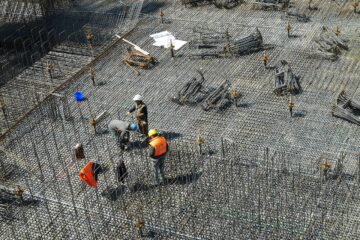![]()
Introduction:
Religion, Caste, and class are certain notions that are strongly intertwined in our Indian Society. People regard them as their pride and beliefs and perform activities with respect to these notions. When a person converts or reconverts himself from one religion to another, he gives up the practices, beliefs, and values to exercise the values of other religions. The reason for conversion and reconversion can be personal or political or based on needs. The process of the practice varies from religion to religion. Hinduism does not require any such specific practice to be performed but to convert into a Muslim, there is a certain procedure which is needed to be followed.
The present case addresses the issues which can arise in the process of conversion and reconversion. The fact of what remains the status of the caste of the person who has been converted or reconverted stands on a tough spot. When a person following Hinduism converts himself into Christianity, what will be the status of his caste which is associated with him due to the very reason that he followed Hinduism. Will, he never belong to that caste again or will he continue to belong to his original caste even after conversion or there is a whole other approach addressed by the courts? The present article attempts to answer these technical questions through this and other cases referred and further analyze the final approach taken by the courts.
Background
B. Devarajan, (further referred to as Respondent) was born to convert Christian parents and was baptized in seven months of his birth. But it is to note that the Respondent never went to church and was always considered as a Hindu in his educational as well as political career, and therefore, he never professed Christianity. Further, the respondent’s parents belonged to Hindu Adi Dravida, and thus Schedule Caste.
The other outstanding circumstance is that the voters of the Constituency reserved for the Scheduled Castes accepted his candidature for the reserved seat and elected him to the Lok Sabha twice. For the elections in the year 1980, he contested his elections from the reserved seats for the scheduled castes. He was elected to the Lok Sabha by a convincing majority.
The appellant, S Anbalagan, challenged the election on the grounds that the respondent was not a member of the scheduled caste, Hindu Adi Dravida, and was pretending to be, to gain certain advantages.
The Election Tribunal held the elections of the respondent valid from the reserved seats because the Respondent was following Hinduism and belonged to the Adi Dravida caste. And therefore, this appeal was filed to challenge the decision of the Election Tribunal and invalidating the election of the Respondent. The present case is the appeal to the Hon’ble Supreme Court of India by the appellant to invalidate the elections of the Respondent from the Rasipuram Parliamentary Constituency, which was reserved for scheduled castes as well.
Issues
The major question which was faced by the Hon’ble Supreme Court was that if a person was reconverted to Hinduism, whether he could revert his original caste if he was accepted as such by the other members of the caste. Therefore, in the present case, the issue highlighted was that will an individual who was born into converted religion but was reconverted to the original religion, will belong to the same original caste. Concerning the present case, whether the Respondent, belonging to Scheduled Caste, Hindu Adi Dravida, after reconversion to Hinduism. The other issue which was addressed was, whether there is a necessity to perform certain activities to reconvert to Hinduism.
Arguments Advanced
The counsel for the appellant contended that the finding of the Election Tribunal was not accurate and the respondent, his parents, and sisters were shown Christians. The appellant further argued that the Respondent was Christian and also provided the court with the Baptismal Certificate and other documents which supported the contentions that the Respondent, his parents, and sisters were born a Christian and were just pretending to be a member of Scheduled Caste for gaining certain advantages. Therefore, the appellant contended that Respondent cannot attain a caste and become a Hindu Adi Dravida on conversion to Hinduism.
Whereas the contentions of the Respondent were supporting the fact that he was treated as a Hindu student who belonged to Schedule Castes and was awarded scholarships on that basis. The counsel for the Respondents also provided the court with acceptable pieces of evidence such as school records which supported the fact that the Respondent never went to church and used to offer worship to Hindu deities in Hindu temples. They also contended that the marriage of Respondent was also performed according to Hindu customs and rites. To sum up the contentions, the Respondents provided all the evidence to prove that the Respondent was following Hinduism and not Christianity in any way.
Judgement
The Hon’ble Supreme Court dismissed the appeal of the appellant on the ground that there was no such clear and precise evidence to show that the respondent was professing Christianity. The bench also laid down the principle that an individual can never lose his status of caste on conversion or reconversion of his Religion. The court held that the caste never dissolves from the inherent nature of an individual but only disappears to reappear through reconversion and the mark of caste does not seem to disappear even after some generations after conversion. The Supreme Court further noted that in that case it had been stated that it did not think that any different principle would apply to the case of conversion to Hinduism of a person whose forefathers had abandoned Hinduism and embraced another religion from the principle applicable to the case of reconversion to Hinduism of a person who himself had abandoned Hinduism and embraced another religion.
Analysis
Conversion and reconversion can be a complex theme, and if it is also seen with the dimension of Caste, it can become more multifaceted. The same was addressed in this particular case. The bench in this case had to answer the status of the caste of an individual after reconversion. The first question which was answered by the court was, why and to what extent caste has become an important notion for an individual as well as a community.
Caste, or ‘jati’, is a form of social stratification characterized by endogamy, hereditary transmission of a lifestyle, which often includes an occupation, status in a hierarchy, customary social interaction, and exclusions.[1] During the pre-independence period, caste was a major cause for social discrimination, which eventually lead to the hardening of the caste identities.
Whereas, Religion is a matter of choice, faith, or sets of beliefs. According to Webster’s Comprehensive Dictionary, religion means a belief binding the spiritual nature of man to a supernatural being as involving a feeling of dependence and responsibility, together with the feelings and practices which naturally flow from such a belief. Therefore, the caste systems deal with social structures within the physical world, whereas religion is focussed more on the metaphysical.[2]
The courts often face the issue of the status of an individual, to which religion or to which caste they belong is because there are people who convert or reconvert their religion for other trivial reasons which have been seen are polygamy, to get reservation benefits, for gaining admission benefits in some institutions that favor people of a certain religion only, divorce, etc. The other reason which the court observed was that conversion to other religions gives the disadvantaged backward caste people the option to embrace other religions in the thirst for liberation. Therefore, to ascertain the fact that that there is no misuse or undue advantage taken, the court has to answer these issues.
In the present case, the bench was clear and precise in its decision. The court understood the importance of caste for a community. It acknowledged the fact that caste has become an instinct nature of the individual, and mere conversion or reconversion to religion cannot make lose the roots of his/her caste. The court addressed the uniqueness of the states of South India where there are Christian families whose forefathers became Christians and who, though they profess the Christian religion, nonetheless observe the practice of Caste.
The other aspect that was decided by the court was how valid was the reconversion of the Respondent to Hinduism. And to this fact, the court referred to similar cases. It was concluded in the case of Muthusami Mudaliar & Anr. v. Masilamani & Others[3] that the process of conversion or reconversion to any caste of Hinduism is a majorly a simple process. If the lower castes claim for recognition and the Hindu Community recognizes them, they are treated as of the Hindu Caste. Therefore, it is a matter of mere recognition from the community. In the cases further referred[4], it was inferred that the expiatory ceremonies for reconversion to Hinduism will only be necessary if the community intends so. The court will not act as a barrier unnecessarily if the community itself has no issues.
Therefore, a person may be a Hindu by birth or by conversion. A mere theoretical allegiance to the Hindu faith by a person born in another faith does not convert him into a Hindu, nor is a bare declaration that he is a Hindu sufficient to convert him to Hinduism, but a bona fide intention to be converted to the Hindu faith, accompanied by conduct unequivocally expressing that intention may be sufficient evidence of conversion.
The simple fact that the Respondent was considered as a Hindu Adi Dravida in his educational and political career. The fact that the Respondent offered his worship in the Hindu Temples and never attended church shows that he was practicing Hinduism. There was no disagreement by the Hindu Adi Dravida Community and thus the Respondent was naturally reverted to Hinduism.
Historically, caste has been a major component in India’s debates on conversion and religious freedom. It was the lower castes that Islamic and Christian missionaries focussed on, and much-changed faith deprived of basic human rights and attracted by the promise of an egalitarian social order. But even after several generations, they still live the same life that their Hindu brethren are condemned to.
Caste and religion are intertwined and therefore Hinduism is supposed to be a non-proselytizing religion. If one were to be converted to Hinduism, the question arises which caste is assigned to the new convert. This question has become more complicated because the State policy provides for reservations based on caste.
Therefore, this judgment holds a significant position as it represents, the interest of lower castes as well as the interest of the community and their religion. It also observes that no person can take illegitimate advantage of other’s interests.
References:
[1] Raj S. Gandhi, From Caste to Class in Indian Society. Humboldt Journal of Social Relations, Vol 7, No.2.
[2] Difference between Caste and Religion, DifferenceBetween.net.
[3] Muthusami Mudaliar And Anr. vs Masilamani And Ors, Ind Cas 42
[4] Perumal Nadar (Dead) By L.R.S vs Ponnuswami, 1971 AIR 2352, 1971 SCR (1) 49, S. Rajagopal vs C. M. Armugam & Ors, 1969 AIR 101, 1969 SCR (1) 257, Gurusami Nadar vs Irulappa Konar And Ors, AIR 1934 Mad 630, 155 Ind Cas 708



0 Comments